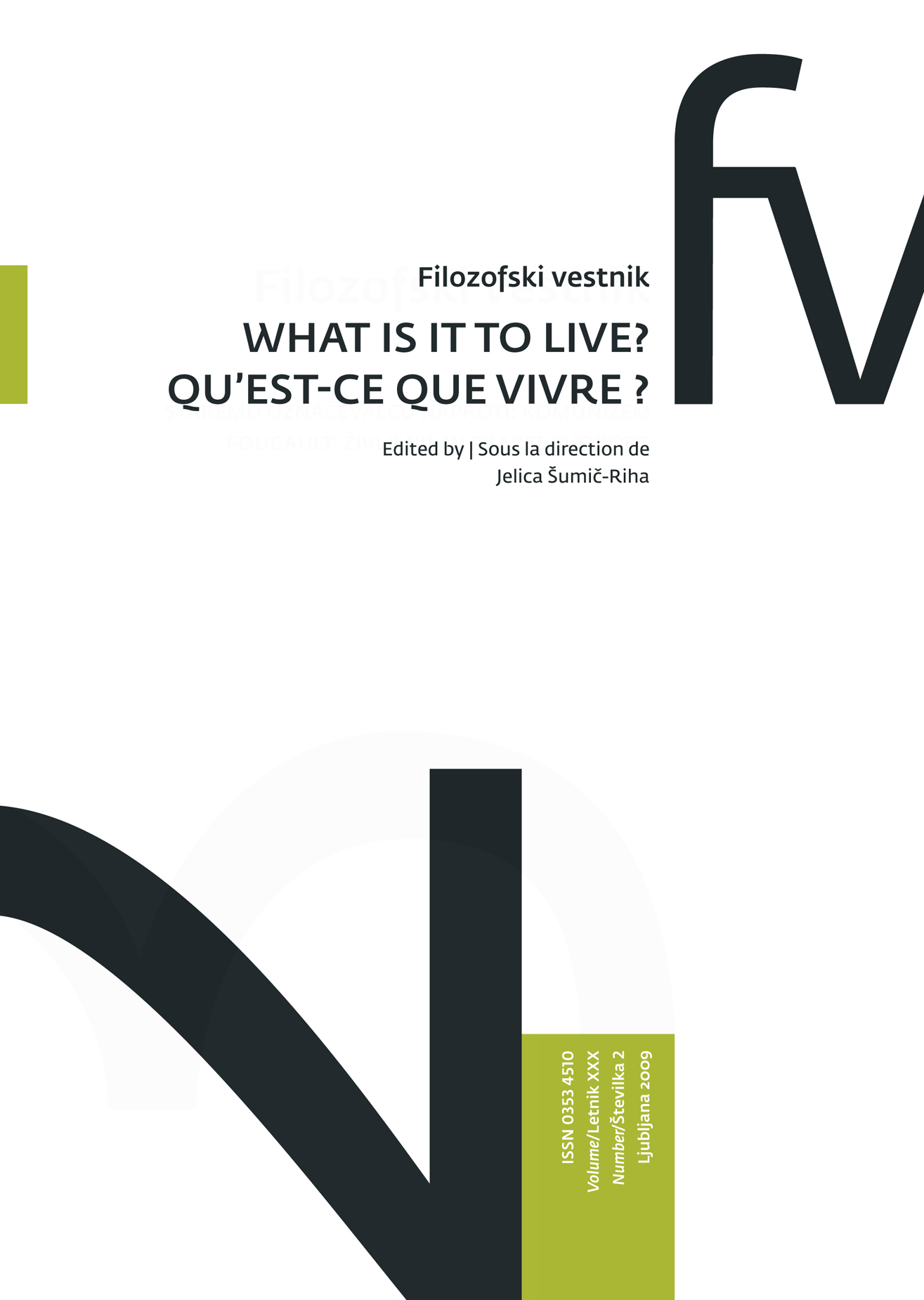Kant and the “Spirit as an Enlivening Principle”
Povzetek
In a famous passage in the Critique of the Power of Judgement, Kant calls the “spirit” an animating or enlivening principle in the mind. Rather than a positive affirmation building on a protobiological background, this definition marks an aesthetic notion of life. As a first step, the “Gemüt” (mind) shows itself to be an ambivalent concept between transcendental philosophy and anthropology. This ambivalence then reoccurs in the notion of life in an aesthetical regard: Life in this sense is the one hand bound to the empirical notion of the powers of life – and thereby to the pre-critical works – but is now turned into something surpassing. Life in aesthetical terms is negatively bound to life in an empirical sense. So is spirit, too: It rather works as a negatively defined principle opening up the given. Life, Gemüt, and spirit make up a relational constellation that provides the grounds for the work of aesthetic ideas. By means of aesthetic ideas, spirit opens up the cognitive and thereby enlivens the Gemüt. This principle, which is spirit, can then be understood as following Kant’s logic of the infinite judgment, because the aesthetic is the opening of the rational to its indeterminate other.Prenosi
Podatki o prenosih še niso na voljo.
Prenosi
Objavljeno
2010-06-09
Kako citirati
Volker, J. (2010). Kant and the “Spirit as an Enlivening Principle”. Filozofski Vestnik, 30(2). Pridobljeno od https://ojs.zrc-sazu.si/filozofski-vestnik/article/view/3210
Številka
Rubrike
Life Between Creation and Duration
Licenca
Avtorji jamčijo, da je delo njihova avtorska stvaritev, da v njem niso kršene avtorske pravice tretjih oseb ali kake druge pravice. V primeru zahtevkov tretjih oseb se avtorji zavezujejo, da bodo varovali interese založnika ter da bodo povrnili morebitno škodo.
Podrobneje v rubriki: Prispevki





